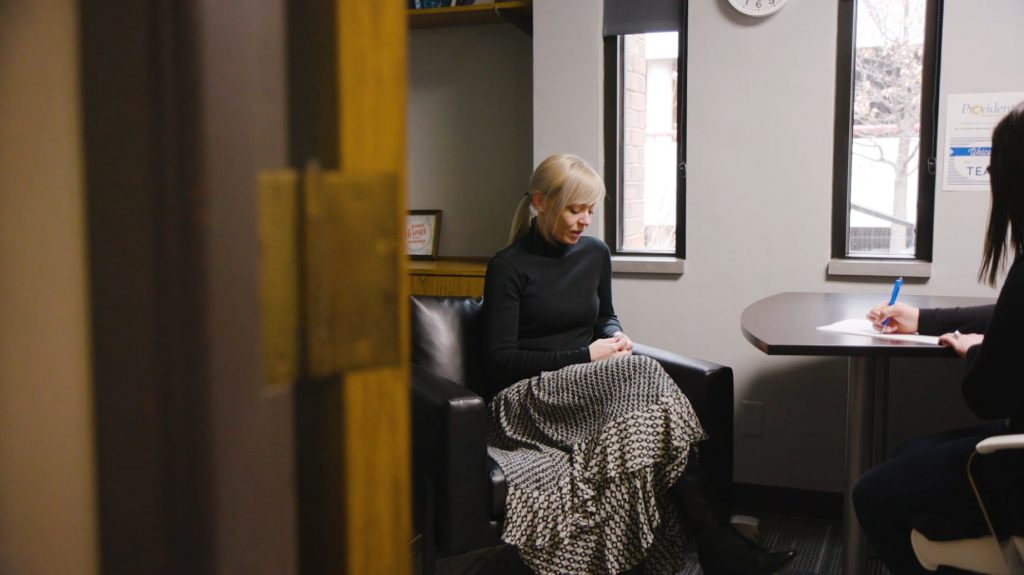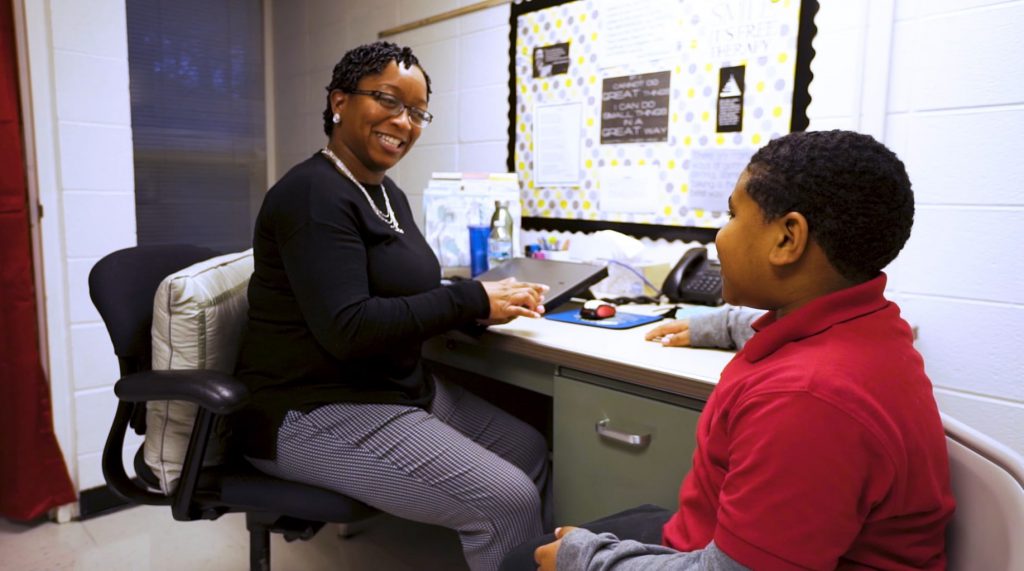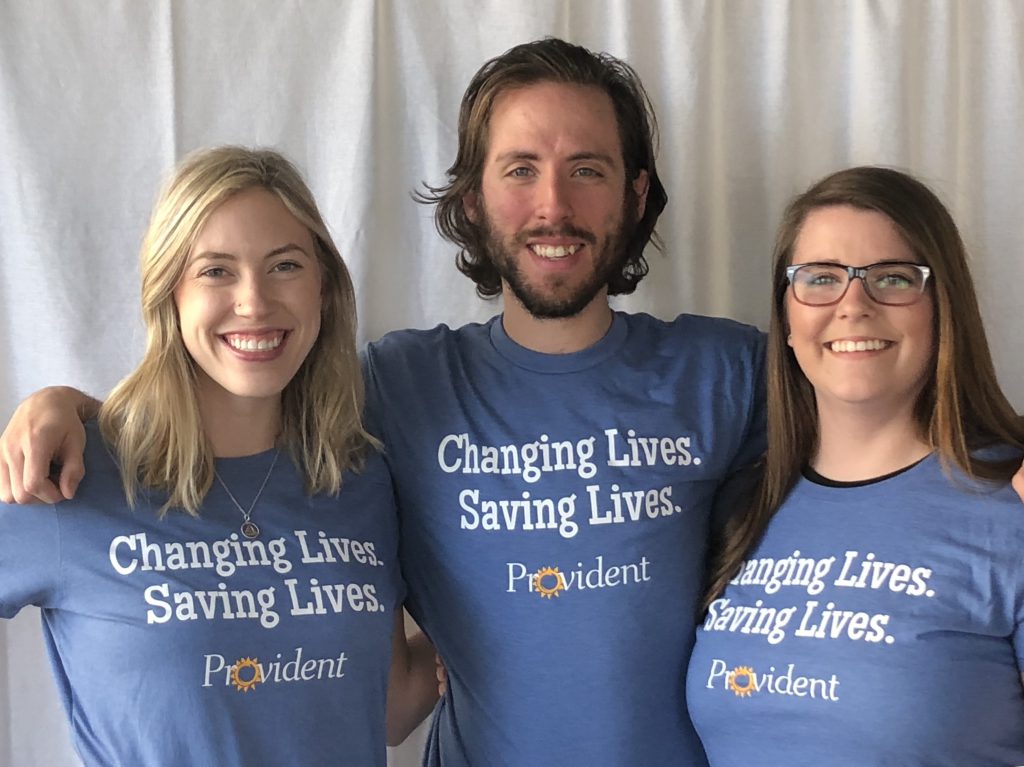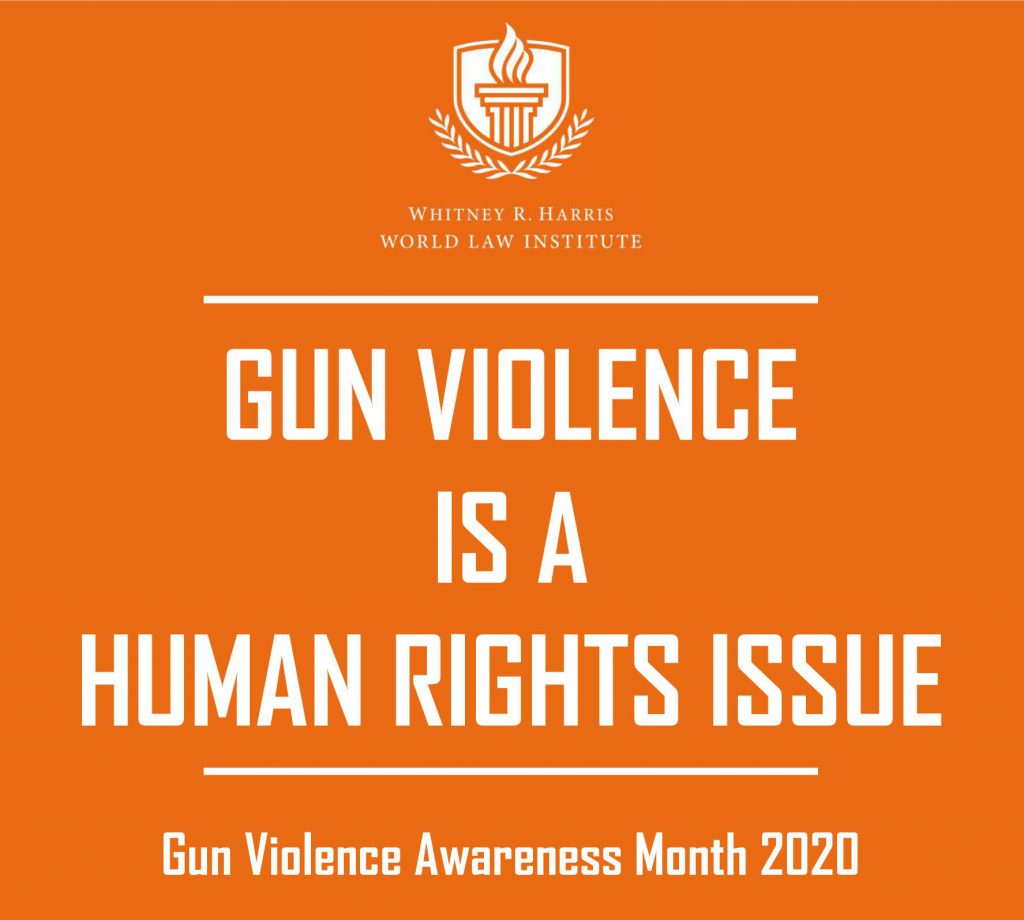By: Kevin Drollinger, President and Executive Director of Provident Behavioral Health; Julie McDowell, Director of Advancement, Provident Behavioral Health; and Amanda Galloway, Principal, AGency Communications
This blog is part of a special series by the Harris Institute’s Gun Violence and Human Rights Initiative and the Institute for Public Health’s Gun Violence Initiative in recognition of National Gun Violence Awareness Month, launched on June 5th for Gun Violence Awareness Day. Throughout this series we will highlight the work being done on this critical issue across campus, the St. Louis region, and the country.

The man on the other end of the line is panicked, sharing irrational thoughts interspersed with cries of anguish. He’s had a hard year that’s included job loss and the stress of the pandemic, plus difficulty managing his decades-long struggle with anxiety. He’s talking about his plans for suicide. They include a firearm.
A young woman sits in her therapist’s office and hangs her head in exhaustion. She was in high school when the Michael Brown case happened and is feeling dread settling into the pit of her stomach during the recent social unrest in the community. She frequently wakes up wondering, “Were those fireworks I just heard, or gunshots?”
A six-year-old in a Spiderman t-shirt raises his hand as he sits among his friends who also stay after school to have a safe place to be until they go home. The Afterschool employee has just asked what they would like to choose as the focus of their community improvement project, which made him think of the mommies and grandmamas who cried in the street last fall when a neighbor child was caught in crossfire. “Let’s make a poster about how we can be superheroes and keep each other safe.”
These are actual scenarios that Provident Behavioral Health’s team has helped their clients navigate over the past few months.
We see first-hand the human rights impact of gun violence every hour of every day. It’s why we’re extremely supportive of and thankful for the work being done by the Gun Violence and Human Rights Initiative.

Provident’s mission is to build brighter futures through exceptional behavioral health services, especially for those with the greatest need. We do that by offering counseling and psychiatric services on a sliding scale fee to clients of all ages, by providing Afterschool care for elementary students, and by partnering with Mary Ryder Home to care for senior women who live with mental health challenges. We have also operated one of the first suicide prevention lifelines in the U.S. since the 1960s and serve as a backup for the National Suicide Prevention Lifeline.
It would be impossible to say that our work isn’t profoundly impacted by firearms. The Harris Institute’s Report, The U.S. Gun Violence Crisis: Human Rights Perspectives and Remedies, explained: “There are nearly twice as many gun-suicides every year as gun-homicides and suicide was the tenth leading cause of death for the entire U.S. population in 2017, according to CDC data. More than half of suicide deaths happen by gunshots.” Provident’s Crisis Services team works 24/7 to help those people impacted by suicide.

Then there is the trauma experienced by gun violence survivors as well as the secondary trauma that ripples out to touch their families, friends, and neighbors. We see elevated anxiety, depression, and PTSD as a result of this issue in our counseling and psychiatric offices. The children we serve also frequently have difficulties with attachment, regressive behavior, and aggression and conduct problems.
Add to this the hopelessness and helplessness that many feel as a result of rampant gun violence in their neighborhoods, which leads to innumerable personal and societal problems. An example of this can be found in an editorial penned for the St. Louis American by BJC’s top executive, Rich Liekweg, about how this issue can even be tied to outcomes of COVID-19: “…young black folks in high violence areas of North St. Louis said, ‘I don’t know each day whether I’m gonna’ live or die, so how is COVID any different?’ They are not taking any precautions and that helps the virus proliferate.”
“…young black folks in high violence areas of North St. Louis said, ‘I don’t know each day whether I’m gonna’ live or die, so how is COVID any different?’ They are not taking any precautions and that helps the virus proliferate.”
Richard J. Liekweg, BJC President and CEO
I read Rich’s words and immediately identified with the shared issues we address. I see an opportunity at this moment, as we work together to fight the pandemic as well as support the Black Lives Matter movement. We are thinking in new ways and building new powerful partnerships. It will take the coordination of organizations like his and ours, yours and the broader legal community, to meet these challenges. We’re honored to stand alongside the Harris Institute and the Institute for Public Health at Washington University.
For local suicide prevention resources, please visit the St. Louis Regional Suicide Prevention Coalition. The Coalition convenes local Suicide Prevention Champions to invest time and expertise to promote a suicide-safe community.

